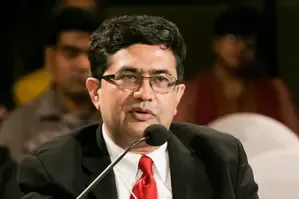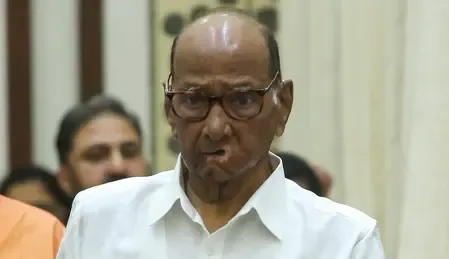How has the Indian stock market flourished in the last 11 years?

Synopsis
Key Takeaways
- Significant growth in investor numbers from 1.67 crore in 2014 to over 11.5 crore today.
- Market capitalisation increased from Rs 67 lakh crore to Rs 440 lakh crore.
- Political stability has fostered investor trust.
- Advancements in digital infrastructure have made investing more accessible.
- NSE is now the world's largest stock exchange.
Mumbai, June 10 (NationPress) The Indian stock market has experienced remarkable growth over the past 11 years under the leadership of Prime Minister Narendra Modi, as stated by Ashish Kumar Chauhan, the Managing Director and CEO of the National Stock Exchange (NSE). This transformation has led to a significant increase in the number of investors throughout the nation.
In a discussion with IANS, he noted that since PM Modi's tenure began in May 2014, there has been a substantial rise in investor participation from various regions, including smaller towns and cities.
“When PM Modi assumed office in 2014, the investor count was at 1.67 crore. Today, it has surged to over 11.5 crore unique investors on the NSE. Additionally, the market capitalisation, which was approximately Rs 67 lakh crore in 2014, has skyrocketed to Rs 440 lakh crore,” Chauhan remarked.
Chauhan emphasized that the last 11 years have been characterized by political stability, fostering trust among investors, especially with the robust advancement in digital public infrastructure (DPI) and mobile data.
“Today, individuals can easily invest in mutual funds or directly engage with the stock markets due to the strong digital infrastructure available,” the NSE CEO shared during his interaction with IANS.
Since its inception in 1994, India's market capitalisation has increased over 120-fold. It currently stands at more than Rs 440 lakh crore or $5.1 trillion.
In the past 11 years, the market capitalisation of NSE-listed companies has grown nearly six-fold, with the market cap-to-GDP ratio doubling from 60% in FY14 to 124% in FY25.
The NSE pioneered the country's first fully automated, screen-based order matching system in 1994, highlighting India's growing capabilities in the IT sector. Today, the NSE stands as the world’s largest stock exchange.









